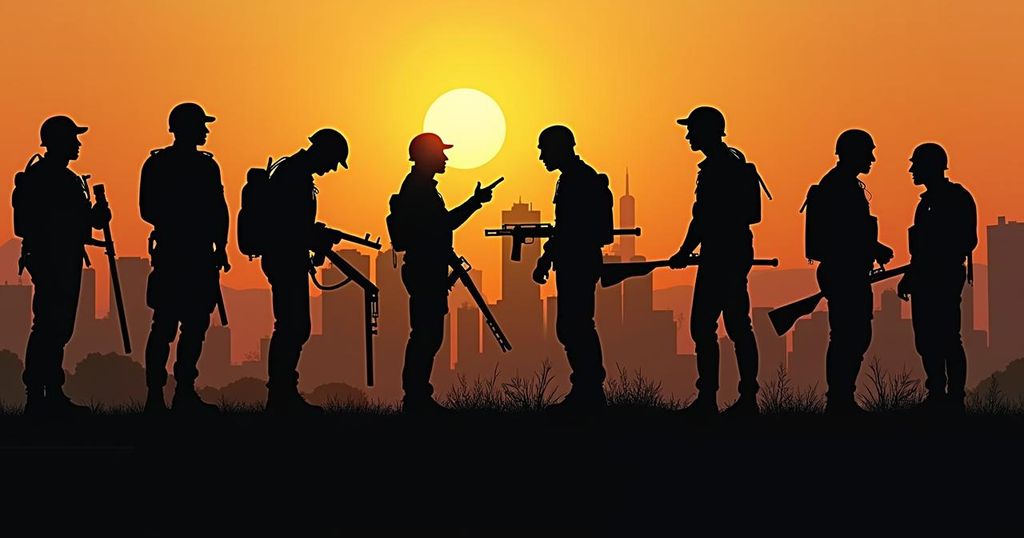The protests in Venezuela following Nicolás Maduro’s controversial election win have led to mass arrests, violence, and a crackdown on dissent, especially affecting families from poorer communities. The opposition faces a fragmented response, with earlier demonstrators now deterred by governmental repression, raising concerns about human rights violations and social division.
In the sweltering Caribbean sun, the streets of Caracas have become a somber gathering place for despairing families seeking answers for their missing relatives, swept up in protests following the controversial presidential election results that extended Nicolás Maduro’s reign. Among the crowd is Hernán García, a father searching for his son Luis, who vanished after joining protests against the perceived electoral fraud by Maduro, whose rule has drawn international condemnation. The unrest is unprecedented, with citizens from impoverished neighborhoods participating in protests against the government’s corruption and mismanagement. The legacy of Hugo Chávez’s initial popularity, stemming from social programs funded by oil wealth, stands in stark contrast to the present reality, where desperate living conditions and mass emigration characterize Venezuela under Maduro. As the streets erupted in violence following the elections, security forces clashed with demonstrators, resulting in casualties and mass arrests. The government’s aggressive response branded protesters as “terrorists,” leading to thousands being detained and facing severe legal repercussions. Reports reveal that within just a few days after the election, more than fifteen individuals lost their lives in the protests. Human rights organizations highlight the lack of access to legal representation for the detained victims of repression. Maduro’s government has moved swiftly to quell dissent, instilling fear within the populace to discourage any further demonstrations. The initial fervor exhibited by the citizens has since dwindled, with subsequent protests lacking the representation of the poorest communities, indicating a significant socio-economic divide amongst those opposing Chavismo. Maria Corina Machado, an opposition figure, has called for demonstrations in wealthier neighborhoods, reflecting a shift in the protest demographic—leaving behind those disadvantaged who bore the brunt of the government’s crackdowns. The situation remains dire in Venezuela, where the rift between the government’s supporters and the opposition epitomizes the deepening crisis affecting the nation.
The context of this article lies in the socio-political turmoil that Venezuela has faced in light of the recent presidential elections, which saw Nicolas Maduro claiming victory amidst widespread allegations of electoral fraud. Following Chávez’s death in 2013 and the subsequent fall in oil prices, Venezuela has not only experienced severe economic decline but also a dramatic surge in political unrest, leading to mass protests. Discontent has permeated society, especially among the poorer populations who once supported Chavismo. The government’s reaction to dissent has involved brutal crackdowns and targeting of opposition figures and everyday citizens alike, many of whom now face severe charges.
In conclusion, the situation in Venezuela highlights a critical juncture in the nation’s history—where a once-popular movement has devolved into repression and fear under Nicolás Maduro’s leadership. The protests that arose post-election show a blend of desperation among previously loyal supporters and a growing division in the socio-economic landscape of the opposition. The implications of the government’s crackdown on dissent indicate an ongoing struggle for basic rights and freedoms in the context of Venezuela’s national crisis.
Original Source: www.thestkittsnevisobserver.com






